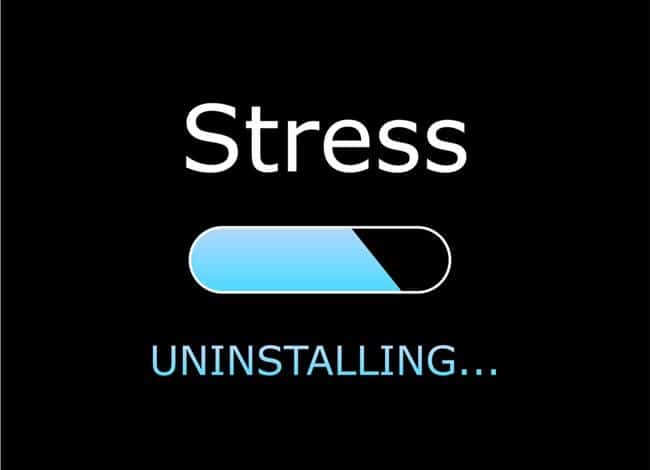
A common way of dealing with stress is taking it out on food whether it’s eating more or less. Chronic stress can increase preference for high calorie foods and increase risk for gaining weight. Research also suggests stress can influence body hormones and something called the hypothalamic–pituitary–adrenal (HPA) axis. It is thought that this axis somewhat controls appetite.
When stress is stemmed for balance of survival, it is important to get enough energy to stay alive. Therefore, appetite is increased. In present times, we experience stress in much different ways even though it may not be for survival.
Still, the body can respond in the same way and increase certain hormones, like cortisol and affect the HPA axis that increase appetite and the storage of fat cells.
After eating high calorie, pleasant foods, stress levels can decrease which can promote stress eating cycle (1).
To combat the physiological and mental effects of stress, experts suggest lowering stress levels in your life. This sounds easy in theory but can be difficult to implement.
Understand your stress
One of the first steps to avoid stress eating is knowing what stresses you out and when you are eating out of stress instead of hunger.
A helpful tool to understand your triggers to do a food journal for a few days. Instead of just writing down what you eat, write down also how you are feeling when you eat and how hungry you are.
If you are honest, you may notice a pattern of emotions that influence your food intake.
Some people eat when they are stressed from a situation where they feel out of control, others may eat from a stressful situation when they are depressed, angry, etc. Recognize what your stress is.
According to a 2004 study (2), participants who had a lower awareness of when they were stressed were less equipped to cope with the stress and more likely to choose high calorie foods.
Being more aware can help you realize you want to eat certain foods just because you are stressed, and you can learn to not give in to those feelings.
Have a game plan
When you know what stress factors influence your eating, you can be more prepared to deal with it and resist the urge to stress eat. When you start feeling stressed, instead of turning to food, find something else to do like go for a walk, journal, play a musical instrument, pray etc.
Shifting your habits is hard. If you are used to eating as a way of dealing with stress, it can take some time and effort to change your habit. You need to remember this hard work will be worth it in the long run.
When you are in stressful circumstances whether at home, work, school, etc. have a game plan of what to do when you feel stressed.
Instead of going in the break room at work where you know there are sweet treats available, go for a quick walk.
Instead of going through a drive through when you are running around doing errands, bring some healthy snacks with you in the car. Make eating healthy the easy choice.
Find enjoyment in healthy foods and give comfort foods a makeover
One reason why stress eating is a struggle is because fatty and sugary foods can release pleasure signals in the brain which can offset the feeling of stress (3).
To combat this, buy healthy foods you love and are able to look forward to eating. When you are feeling stressed, turn to these foods first.
Another strategy is to give your guilty pleasures a healthy make over. Cooking something healthier can be a tricky way to still satisfy your craving but not get all the unwanted calories that come with it.
Many websites such as Cooking Light, Greatist and the Food Network all offer easy ways to lighten up comfort food dishes.
Practice stress lowering techniques
Chronic stress can promote cycles of stress eating (4). Therefore, a way to avoid stress eating is to practice stress lowering techniques into your daily schedule. Exercise is beneficial for many reasons, and it can also release endorphins that can be helpful for mental health.
Adding in more exercise in your daily routine may sound like even more added stress, but make it a priority for your health.
It doesn’t mean you have to get a gym membership; find something you enjoy doing. Another suggestion is making adequate sleep a priority, as that can also play a role with stress hormones.
Higher stress levels is associated with a higher risk for obesity especially in women (5).
Bringing balance to your life with doing activities that relax you, like spending time in nature, exercising, traveling, etc. can help lower chronic stress which can help you avoid stress eating.










